Background
Jan Assmann was born on July 7, 1938 in Langelsheim, Goslar, Lower Saxony, Germany. He is the son of Hans, an architect, and Charlotte (Böning) Assmann.

Heidelberg, Germany
Jann Assman studied at the Heidelberg University. He taught Egyptology there from 1992 to 2003.
Konstanz, Baden-Württemberg, Germany
Jan Assman is an honorary professor of Cultural and Religious Studies at the Constance University since 2005.
Munich, Bavaria, Germany
Jan Assman studied at the University of Munich.
Göttingen, Lower Saxony, Germany
Jan Assmann studied at the University of Göttingen.
Paris, France
Jan Assmann studied at the University of Paris.









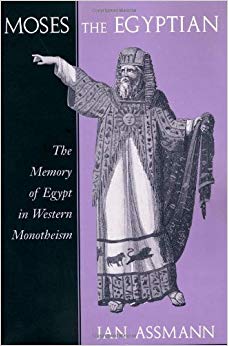
(To account for the complexities of the foundational event...)
To account for the complexities of the foundational event through which monotheism was established, Moses the Egyptian goes back to the short-lived monotheistic revolution of the Egyptian king Akhenaten (1360-1340 B.C.E.). Assmann traces the monotheism of Moses to this source, then shows how his followers denied the Egyptians any part in the origin of their beliefs and condemned them as polytheistic idolaters.
http://www.amazon.com/gp/product/0674587391/?tag=2022091-20
1998
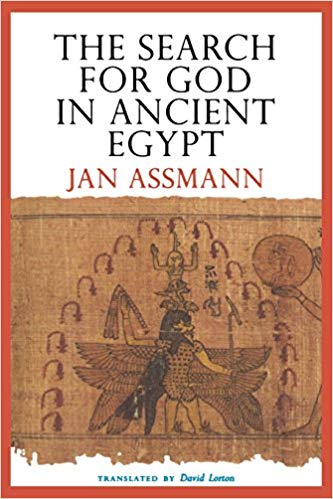
(This book offers a distillation of Jan Assmann's views on...)
This book offers a distillation of Jan Assmann's views on ancient Egyptian religion, with special emphasis on theology and piety. Deeply rooted in the texts of ancient Egypt and thoroughly informed by comparative religion, theology, anthropology, and semiotic analysis, Assmann's interpretations reveal the complexity of Egyptian thought in a new way.Assmann takes special care to distinguish between the "implicit" theology of Egyptian polytheism and the "explicit" theology that is concerned with exploring the problem of the divine. His discussion of polytheism and mythology addresses aspects of ritual, the universe, and myth; his consideration of explicit theology deals with theodicy and the specifics of Amarna religion.
http://www.amazon.com/gp/product/0801487293/?tag=2022091-20
2001
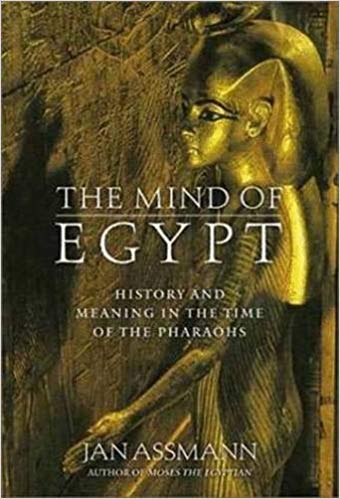
(The Mind of Egypt presents an unprecedented account of th...)
The Mind of Egypt presents an unprecedented account of the mainsprings of Egyptian civilization-the ideals, values, mentalities, belief systems, and aspirations that shaped the first territorial state in human history. Drawing on a range of literary, iconographic, and archaeological sources, renowned historian Jan Assmann reconstructs a world of unparalleled complexity, a culture that, long before others, possessed an extraordinary degree of awareness and self-reflection.
http://www.amazon.com/gp/product/0805054626/?tag=2022091-20
2002
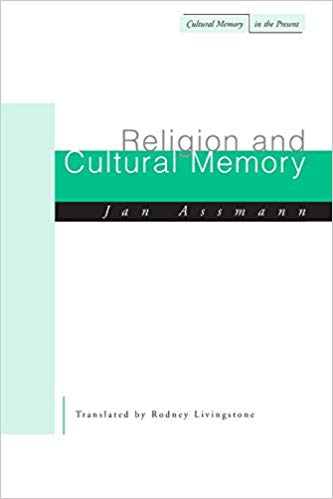
(In ten brilliant essays, Jan Assmann explores the connect...)
In ten brilliant essays, Jan Assmann explores the connections between religion, culture, and memory. Building on Maurice Halbwachs's idea that memory, like language, is a social phenomenon as well as an individual one, he argues that memory has a cultural dimension too. He develops a persuasive view of the life of the past in such surface phenomena as codes, religious rites and festivals, and canonical texts on the one hand, and in the Freudian psychodrama of repressing and resurrecting the past on the other. Whereas the current fad for oral history inevitably focuses on the actual memories of the last century or so, Assmann presents a commanding view of culture extending over five thousand years. He focuses on cultural memory from the Egyptians, Babylonians, and the Osage Indians down to recent controversies about memorializing the Holocaust in Germany and the role of memory in the current disputes between Israelis and Palestinians in the Middle East and between Protestants and Catholics in Northern Ireland.
http://www.amazon.com/gp/product/0804745234/?tag=2022091-20
2005
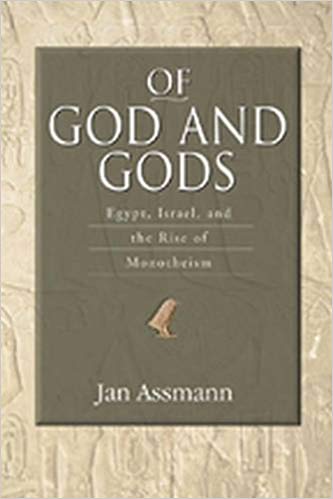
(This book explores the revolutionary newness of biblical ...)
This book explores the revolutionary newness of biblical theology against a background of the polytheism that was once so commonplace.
http://www.amazon.com/gp/product/0299225542/?tag=2022091-20
2008
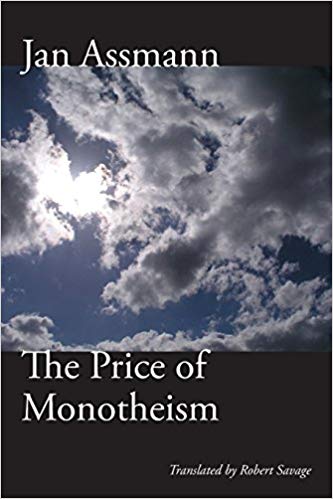
(In this nuanced consideration of his own controversial Mo...)
In this nuanced consideration of his own controversial Moses the Egyptian, renowned Egyptologist Jan Assmann answers his critics, extending and building upon ideas from his previous book. Maintaining that it was indeed the Moses of the Hebrew Bible who introduced the true-false distinction in a permanent and revolutionary form, Assmann reiterates that the price of this monotheistic revolution has been the exclusion, as paganism and heresy, of everything deemed incompatible with the truth it proclaims.
http://www.amazon.com/gp/product/0804761604/?tag=2022091-20
2009
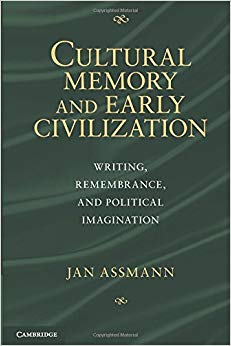
(This book presents a groundbreaking theoretical analysis ...)
This book presents a groundbreaking theoretical analysis of memory, identity, and culture. It investigates how cultures remember, arguing that human memory exists and is communicated in two ways, namely inter-human interaction and in external systems of notation, such as writing, which can span generations. Dr. Assmann defines two theoretical concepts of cultural memory, differentiating between the long-term memory of societies, which can span up to 3,000 years, and communicative memory, which is typically restricted to 80 - 100 years.
http://www.amazon.com/gp/product/0521188024/?tag=2022091-20
2011
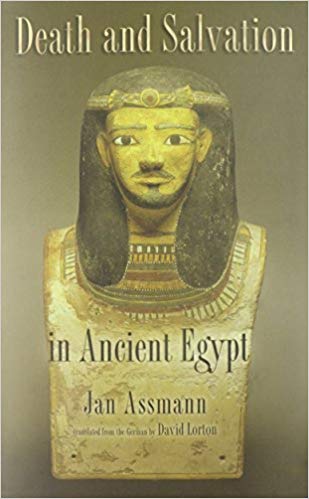
(In this book, Assmann explores images of death and of dea...)
In this book, Assmann explores images of death and of death rites in ancient Egypt to provide startling new insights into the particular character of the civilization as a whole. Assmann describes in detail nine different images of death: death as the body being torn apart, as social isolation, the notion of the court of the dead, the dead body, the mummy, the soul and ancestral spirit of the dead, death as separation and transition, as homecoming, and as secret. Death and Salvation in Ancient Egypt also includes a fascinating discussion of rites that reflect beliefs about death through language and ritual.
http://www.amazon.com/gp/product/0801479738/?tag=2022091-20
2014
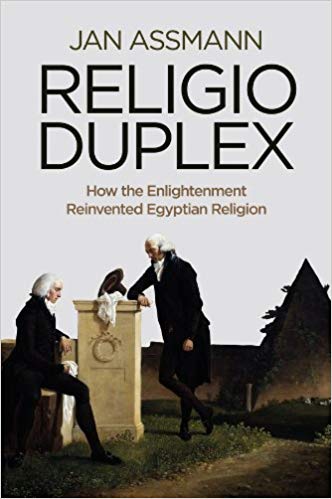
(In this important new book, the distinguished Egyptologis...)
In this important new book, the distinguished Egyptologist Jan Assmann provides a masterful overview of a crucial theme in the religious history of the West - that of 'religio duplex', or dual religion. Assmann explains that the Early Modern period witnessed the birth of the idea of dual religion with, on the one hand, the religion of reason and, on the other, that of revelation.
http://www.amazon.com/gp/product/0745668437/?tag=2022091-20
2014
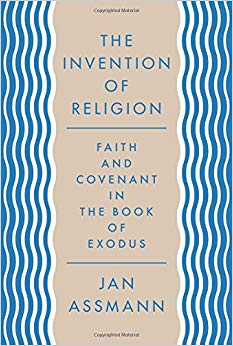
(The Invention of Religion is a powerful account of how id...)
The Invention of Religion is a powerful account of how ideas of faith, revelation, and covenant, first introduced in Exodus, shaped Judaism and were later adopted by Christianity and Islam to form the bedrock of the world's Abrahamic religions.
http://www.amazon.com/gp/product/0691157081/?tag=2022091-20
2018
Jan Assmann was born on July 7, 1938 in Langelsheim, Goslar, Lower Saxony, Germany. He is the son of Hans, an architect, and Charlotte (Böning) Assmann.
Jan Assmann attended Universities of Munich, Goettingen, Paris, and Heidelberg. In 1965 he earned Ph.D. degree.
Professor Jan Assmann taught Egyptology at Heidelberg University from 1992 till 2003 and has been an honorary Professor of Cultural and Religious Studies at Constance University since 2005. His wide ranging work explored ancient Egyptian religion, litearture and history, cultural theory and memory, the reception of Egypt in Europe and historical anthropology. He has taught as visiting professor in Paris, Jerusalem and several Amercian universities including Rice, Yale and Chicago. Professor Assmann was the Humanitas Visiting Professor in Interfaith Studies in 2011.
His books in English include Moses the Egyptian (1997), The Search for God in Ancient Egypt (2002), Death and Salvation in Ancient Egypt (2006) and The Price of Monotheism (2009).
(The Invention of Religion is a powerful account of how id...)
2018(The Mind of Egypt presents an unprecedented account of th...)
2002(To account for the complexities of the foundational event...)
1998(In this important new book, the distinguished Egyptologis...)
2014(In this nuanced consideration of his own controversial Mo...)
2009(In this book, Assmann explores images of death and of dea...)
2014(This book explores the revolutionary newness of biblical ...)
2008(This book offers a distillation of Jan Assmann's views on...)
2001(In ten brilliant essays, Jan Assmann explores the connect...)
2005(This book presents a groundbreaking theoretical analysis ...)
2011Jan Assmann is a member of the Academy of Sciences (Akademie der Wissenschaften), of the German Archaeological Institute, of the Institute of Historical Anthropology, of the Egypt Exploration Society.
On August 7, 1968 Jan Assmann married Aleida B. Bornkamm, a professor of literature. They have five children: Vincent, David, Marlene, Valerie, Corinna.
